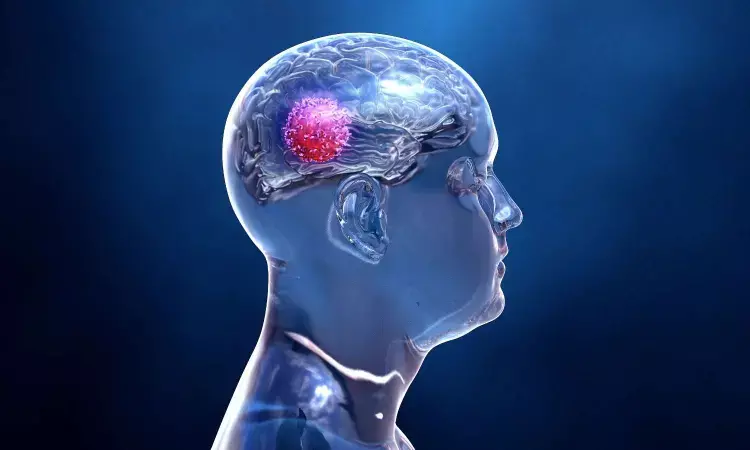- Home
- Medical news & Guidelines
- Anesthesiology
- Cardiology and CTVS
- Critical Care
- Dentistry
- Dermatology
- Diabetes and Endocrinology
- ENT
- Gastroenterology
- Medicine
- Nephrology
- Neurology
- Obstretics-Gynaecology
- Oncology
- Ophthalmology
- Orthopaedics
- Pediatrics-Neonatology
- Psychiatry
- Pulmonology
- Radiology
- Surgery
- Urology
- Laboratory Medicine
- Diet
- Nursing
- Paramedical
- Physiotherapy
- Health news
- Fact Check
- Bone Health Fact Check
- Brain Health Fact Check
- Cancer Related Fact Check
- Child Care Fact Check
- Dental and oral health fact check
- Diabetes and metabolic health fact check
- Diet and Nutrition Fact Check
- Eye and ENT Care Fact Check
- Fitness fact check
- Gut health fact check
- Heart health fact check
- Kidney health fact check
- Medical education fact check
- Men's health fact check
- Respiratory fact check
- Skin and hair care fact check
- Vaccine and Immunization fact check
- Women's health fact check
- AYUSH
- State News
- Andaman and Nicobar Islands
- Andhra Pradesh
- Arunachal Pradesh
- Assam
- Bihar
- Chandigarh
- Chattisgarh
- Dadra and Nagar Haveli
- Daman and Diu
- Delhi
- Goa
- Gujarat
- Haryana
- Himachal Pradesh
- Jammu & Kashmir
- Jharkhand
- Karnataka
- Kerala
- Ladakh
- Lakshadweep
- Madhya Pradesh
- Maharashtra
- Manipur
- Meghalaya
- Mizoram
- Nagaland
- Odisha
- Puducherry
- Punjab
- Rajasthan
- Sikkim
- Tamil Nadu
- Telangana
- Tripura
- Uttar Pradesh
- Uttrakhand
- West Bengal
- Medical Education
- Industry
New drug for effective treatment of Medulloblastoma among children

Researchers have discovered a drug combination that may offer a better prognosis for children diagnosed with MYC amplified Medulloblastoma, an often deadly form of brain cancer. An oncogene called MYC is amplified in these tumors making them very susceptible to recurrence. In addition, there’s a greater risk of it spreading to other areas of the brain and down the spine,The five-year survival rate of this cancer is less than 45 percent. We wanted to discover better treatment options for these kids.
Mitra’s team discovered that two drugs which have already cleared phase I safety trials in other solid tumors have a significant impact on these tumors when used together.
Using the epigenetic drug tacedinaline, the team discovered that in addition to making tumors grow MYC was also hiding the tumors from the various immune cells in the body. They were able to unblock what are referred to as ‘don’t eat me pathways’ that prevent macrophages in the immune system from consuming a tumor.
Then they made the tumor more enticing. When they used tacedinaline to unblock those pathways, and then added anti-CD47, a drug which makes macrophages become super eaters, the tumor became extremely appetizing to the macrophages enticing them to eat the tumor that was unblocked. You are essentially harnessing the body’s own immune system by giving it a jumpstart, much like a medical version of PacMan.
Researcher said that while traditional therapies like chemotherapy have previously targeted the tumor growth pathways this is the first time pathway immune evasion pathways are being targeted in these types of devastating brain tumors.
Traditional adult cancer drugs don’t work well in kids because children are still developing and their normal cells divide at a rapid pace. This drug combination could potentially help not only minimize the negative impacts of traditional cancer treatment in kids, but also give patients diagnosed with MYC amplified Medulloblastoma a better chance at survival.
Dr Kamal Kant Kohli-MBBS, DTCD- a chest specialist with more than 30 years of practice and a flair for writing clinical articles, Dr Kamal Kant Kohli joined Medical Dialogues as a Chief Editor of Medical News. Besides writing articles, as an editor, he proofreads and verifies all the medical content published on Medical Dialogues including those coming from journals, studies,medical conferences,guidelines etc. Email: drkohli@medicaldialogues.in. Contact no. 011-43720751


